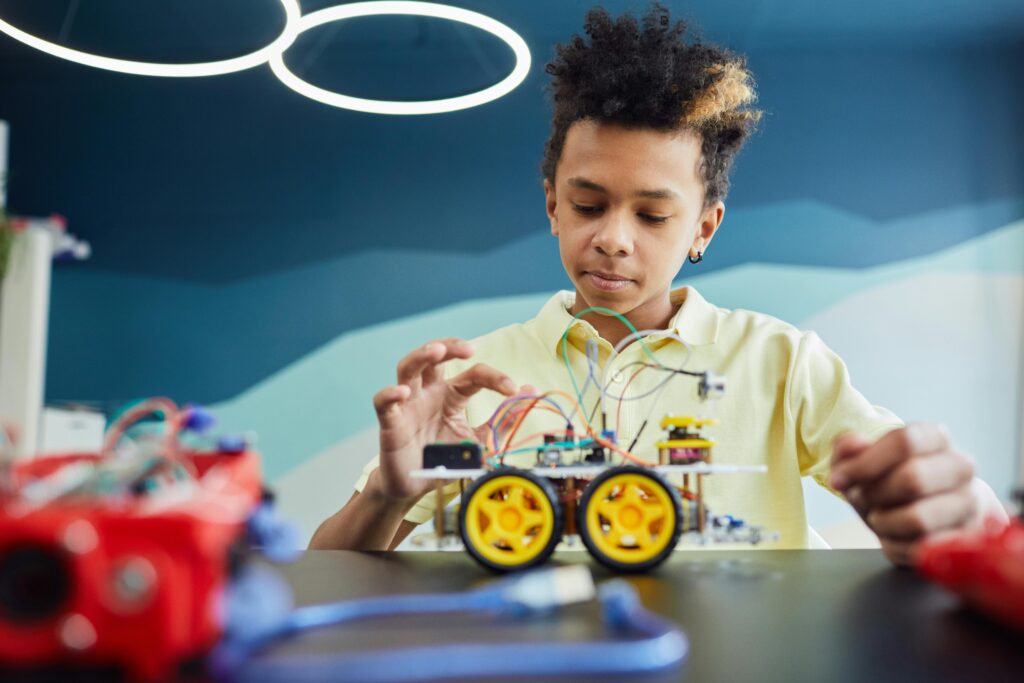Introduction
AI in Education has moved from being a futuristic concept to a present-day reality. With classrooms worldwide increasingly influenced by artificial intelligence tools, teachers need the skills to adapt. Recognizing this, the American Federation of Teachers (AFT) has launched a landmark partnership with Microsoft, OpenAI, and Anthropic. The collaboration will provide free AI training and curriculum to educators, giving them the resources to integrate advanced technology into teaching practices.
This partnership represents a major step in bridging the gap between innovation and classroom application, ensuring teachers are prepared for the evolving demands of 21st-century education.
Why AI in Education Matters
The rise of AI in Education has sparked debates globally. Supporters argue that it can:
- Personalize learning experiences for students.
- Automate repetitive administrative tasks.
- Enhance teaching with intelligent tutoring systems and chatbots.
On the other hand, critics worry about data privacy, job displacement, and over-reliance on technology. However, with proper training and guidance, AI can empower teachers rather than replace them, making initiatives like AFT’s partnership vital.
Details of the Partnership
The AFT, representing 1.7 million teachers and education professionals, has announced that its members will gain free access to:
- Workshops and training modules developed in collaboration with Microsoft, OpenAI, and Anthropic.
- Curriculum guides showing how to use AI responsibly in classrooms.
- Hands-on practice with tools such as Microsoft’s AI-powered apps and OpenAI’s ChatGPT.
By aligning with tech giants, the AFT ensures that educators are not just exposed to theoretical AI concepts but receive practical, classroom-ready skills.
Microsoft’s Role
Microsoft has been at the forefront of AI in Education, embedding generative AI into its Office suite and learning platforms. For this initiative, it will provide:
- AI-driven productivity tools for lesson planning.
- Support through Microsoft Teams’ integrated education solutions.
- Specialized resources for managing classroom engagement and grading.
This equips teachers with AI assistance in both instruction and daily management, allowing them to focus more on student development.
OpenAI and Anthropic’s Role
OpenAI, the developer of ChatGPT, and Anthropic, the company behind Claude, are bringing conversational AI into the education landscape. For teachers, this means:
- Access to AI tutoring assistants that can provide students with instant feedback.
- Ethical AI guidelines on preventing misuse in exams or assignments.
- Exposure to next-generation models that can support creative learning tasks, from essay writing assistance to coding tutorials.
By engaging directly with the organizations developing leading AI models, educators gain insights into both opportunities and risks.
Benefits for Teachers
This partnership’s impact on teachers could be transformative. Through AI in Education, they will:
- Reduce workload by automating administrative tasks.
- Gain confidence in addressing students’ AI-generated work.
- Create innovative lesson plans tailored to different learning levels.
For example, a teacher could use ChatGPT to draft multiple versions of a history assignment for students at varying skill levels, ensuring no learner is left behind.
Benefits for Students
The student community stands to benefit significantly from AI in Education:
- Personalized learning journeys based on their strengths and weaknesses.
- Real-time support through AI tutoring outside school hours.
- Exposure to advanced technologies, preparing them for future careers.
Early access to AI also equips students with critical digital literacy, enabling them to engage responsibly with emerging technologies.

Challenges Ahead
While the AFT partnership is promising, challenges remain in scaling AI in Education:
- Equity concerns: Not all schools have equal access to high-speed internet or devices.
- Ethical dilemmas: Teachers must ensure students don’t misuse AI for plagiarism.
- Training depth: A one-time workshop isn’t enough; ongoing professional development will be key.
Addressing these issues will determine whether the initiative achieves long-term success.
Global Implications
The AFT initiative is not just about the U.S. It signals a broader trend: education systems worldwide are experimenting with AI in Education. Countries like China and Singapore are already piloting AI-driven classrooms, while Europe is focusing on balancing innovation with strict data protection.
By collaborating with U.S.-based tech leaders, the AFT sets an example that other teacher unions and education ministries may soon follow.
The Future of AI in Education
Looking ahead, AI in Education is likely to expand into:
- Virtual classrooms powered by AI tutors.
- AI-driven assessments that adapt to individual student progress.
- Cross-border learning, where students in one country can instantly interact with AI-assisted classes elsewhere.
If rolled out responsibly, these innovations could revolutionize the way knowledge is delivered and absorbed.
Conclusion
The AFT’s partnership with Microsoft, OpenAI, and Anthropic is a landmark step in the evolution of AI in Education. By providing free training and curriculum resources, it ensures that teachers—the backbone of education—are not left behind in the AI revolution.
While challenges of equity, ethics, and sustainability remain, the initiative signals a future where teachers and technology work hand in hand to deliver more personalized, effective, and engaging learning experiences.
AI in Education is no longer optional—it is the foundation for preparing the next generation for a rapidly changing world.
Source:
American Federation of Teachers




332tpd